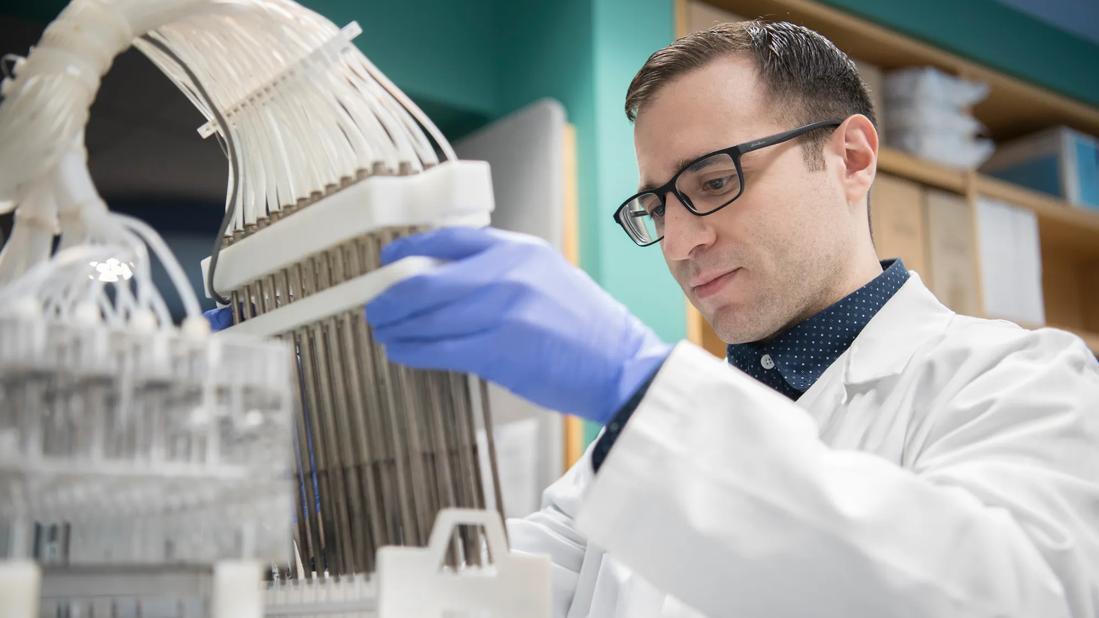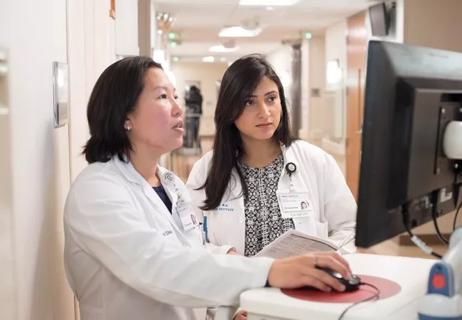A Q&A with Suneel Apte, MBBS, D Phil

If you were to have asked a young Suneel Apte, MBBS, D Phil, where he saw himself in the future, he would not have said working in a research laboratory.
Advertisement
Cleveland Clinic is a non-profit academic medical center. Advertising on our site helps support our mission. We do not endorse non-Cleveland Clinic products or services. Policy
Years and degrees later, now Staff within Lerner Research Institute’s Department of Biomedical Engineering, Dr. Apte’s focus has shifted from orthopaedic surgery to cutting-edge biomedical research. His early years in the clinic and operating room have helped him tremendously at the lab bench — giving him the unique vision to see how very early scientific discoveries might one day be transformed into technologies that help patients.
Consult QD talked to Dr. Apte to find out where his passion stems from, why basic science research is so important and more.
How do you put “Patients First”?
I am a surgeon by training, although I haven’t worked directly with patients for the past 30 years. During my orthopaedic surgery residency, I had the opportunity to obtain a PhD. After completing six years of post-doctoral training, I opted to become a full-time scientist. Research provides a strong opportunity to put patients first. My group’s applied research has a focus on human health disorders such as birth defects, cardiovascular disease and eye and musculoskeletal conditions. We also always look for ways that our basic research findings may have an unforeseen impact on patients and human health.
Why do you choose to practice at Cleveland Clinic?
The high-performing clinical expertise in various specialties and collaborative environment at Cleveland Clinic have led to productive partnerships with my physician colleagues in several disciplines over the past 22 years — orthopaedics, of course, but also ophthalmology, cardiothoracic surgery, obstetrics and cancer pathology, just to mention a few.
Advertisement
Ways you decompress from work?
I enjoy several outdoor activities, often with my children. I am an ultrarunner, doing most of my training on dirt trails in the Cleveland area, and I cross-country ski and bike regularly. The chance to get out and enjoy nature while doing all of these activities is an added bonus. Until recently, I was a regular triathlete and have completed four Ironman events. Nearly every day between March and December, I run or bike to work from my home in Shaker Heights. I like the simplicity of the commute and it’s a great way to train for endurance events. We are blessed with so many scenic and free outdoor possibilities in the Cleveland area.
To those not involved in research, what do you wish they knew about it?
Research is driven by curiosity and involves asking bold questions for which the answers are rarely obvious. Research is about taking risks and being open to new ideas and possibilities. Nearly everything we do in the lab has an uncertain outcome, and therefore every experiment provides knowledge that is new in some way. The outcome of each experiment is interesting and rewarding, even if it is not what we hoped for. Research is about discovery, and discoveries are tremendously exciting.
What do you wish others knew about Lerner Research Institute?
LRI helps to fulfill two major Cleveland Clinic charter missions: cutting-edge research and education. In addition to research that has a direct impact on patient care, LRI conducts basic discovery research. The value of this kind of research is sometimes underestimated. Without basic research, we would not understand the biology of human disease, which is a prerequisite for finding cures.
Advertisement
The science community is international. Reflecting this, LRI personnel come from all over the world. LRI scientists also span a large age range — from undergraduates getting their first taste of research and young technicians stepping into their first job after graduation, to PhD students, post-doctoral fellows, experienced technologist and grant-funded scientists. A major function of LRI is training and mentoring the next generation of scientists in a supportive and collaborative environment. Additionally, LRI Cores provide access to and training on sophisticated instruments and technology clusters that young scientists might not have access to in some institutions. The highly qualified Cores personnel play a crucial role in training scientists and physicians across Cleveland Clinic and in the discoveries made at LRI.
Advertisement
Advertisement

Pulmonologist-scientist is awarded a $2 million grant from the NIH

Cardiologists offer professionals guidance for better sleep

Reduce stress by adopting mindfulness as a way of life

A Q&A with sports medicine physician Dominic King, DO

Reflections on providing all patient care with the same respect

3 Women's Professional Staff Association members field this question

Benevolence and nonmaleficence in self-disclosure

It's time to take care of YOU